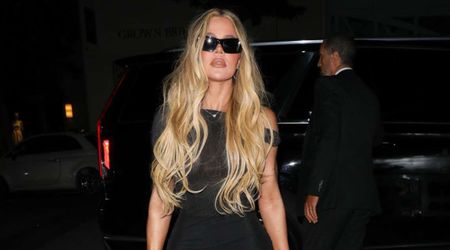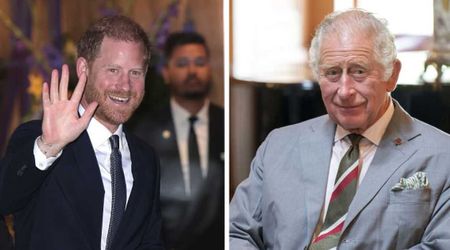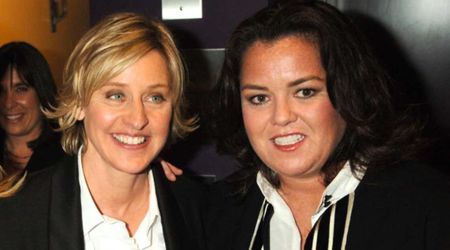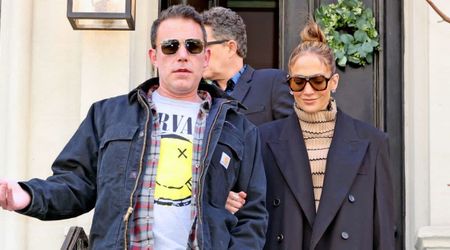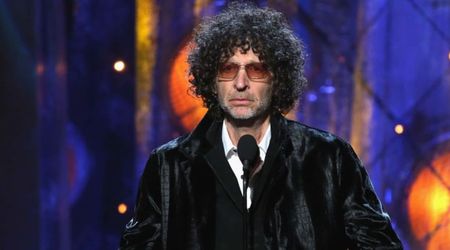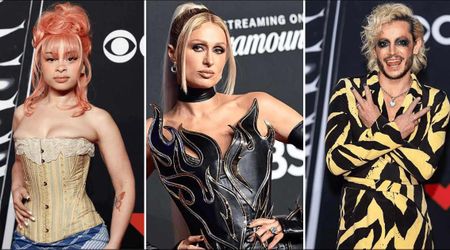Ex-NBA star Craig Hodges in dispute with Justin Baldoni's Wayfarer Studios after 'It Ends With Us' drama

LOS ANGELES, CALIFORNIA: Actor Justin Baldoni had a rather dramatic summer that saw him secretly clashing with his 'It Ends With Us' co-star Blake Lively.
Although details of their tiff remained mostly under wraps, it seems Baldoni’s challenges weren’t confined to the co-star drama. The actor-turned-producer soon found himself embroiled in a much deeper controversy — this time involving former NBA star Craig Hodges.
The Craig Hodges documentary saga
In 2021, Justin Baldoni's production company, Wayfarer, which he operates with billionaire Steve Sarowitz, secured a deal to adapt Craig Hodges' 2017 book, 'Long Shot: The Triumphs and Struggles of an NBA Freedom Fighter', into a documentary.
Hodges, a two-time NBA champion with the Chicago Bulls, hoped to tell his story of being blackballed from the league for standing up against social injustices.
Given the massive success of 'The Last Dance', the hit ESPN series about Hodges’ former teammate Michael Jordan, the timing for another documentary covering that era seemed perfect.
However, things fell apart rapidly.
By 2023, the project was stalled and Hodges was battling Wayfarer to get the rights back. What started as a financial issue, which isn’t uncommon in Hollywood, soon turned into a much bigger conversation about race and who should be responsible for telling the story of a Black man like Hodges.

In 'Long Shot', Hodges detailed his experiences as an outspoken Black athlete in the NBA. He claimed that his willingness to criticize fellow Black players who “failed to use their considerable wealth and influence to assist the poor and disenfranchised" backfired on him.
Hodges was notably cut from the Bulls in the early 1990s and struggled to land another position on an NBA team. His activism was prominently displayed during the Bulls' visit to the White House in 1992.
Wearing a dashiki, Hodges handed then-President George HW Bush a handwritten letter urging him to address racism and economic inequality in America.
The documentary, initially titled 'The Lost Dance' and later renamed 'Whiteballed', aimed to delve into these significant themes. Hodges and British-Indian producer Jivi Singh had already started production on the film when Wayfarer came on board to provide financing.
However, creative differences soon emerged, as Hodges felt that Wayfarer was attempting to make his story more “palatable” for the NBA, a charge that the company vehemently denied.
Craig Hodges criticizes Wayfarer's vision for documentary
According to Craig Hodges, when Jivi Singh joined the project, he perceived a filmmaker dedicated to authentically capturing the essence of his story. However, the vision for the documentary changed once Wayfarer got involved.
“When I met Jivi, I realized he wanted to do justice to my book [with] an accurate portrayal of the timeframe that the material covered. However, Wayfarer’s involvement [started] a creative debate about framing Craig Hodges in a palatable way that the NBA would accept, which isn’t the essence of my book,” Hodges told Deadline.
“Wayfarer never seemed interested in that version of the story. Justin Baldoni was definitely interested in virtue signaling and piggy-backing off the hype of The Last Dance, but a lot less interested in the true weight of responsibility that came with accurately depicting the realities of being a Black man in America," he added.
From Wayfarer's viewpoint, the documentary needed a Black director to effectively convey Hodges' narrative. Baldoni and Wayfarer CEO Jamey Heath, who is also Black, aimed to replace Singh with Kirk Fraser, a Black director recognized for his ESPN documentary 'Without Bias', which explored the tragic story of NBA prospect Len Bias.
Fraser, who hails from Jamaica, had experience working on documentaries about the Tuskegee Airmen. However, Singh opposed the change, resulting in a tense confrontation over the direction of the project.
During a Zoom call later reviewed by Deadline, Baldoni and Heath attempted to explain their reasoning for believing Singh wasn’t the best fit to direct the film, citing concerns related to his ethnicity and life experience.
“I promise you, that as much as you feel no one knows [Hodges’ life] better, no one knows it better than me. I’m his age, I’ve experienced it and walked through it,” Heath said. “You might be a wonderful filmmaker, but the story is something that there might be some blind spots for you.”
Singh pushed back, arguing that everyone brings their own perspective to a project and that he should be given the chance to understand and grow.
He said, “We’re all going to have our own subjective perspective, Jamie, but I asked you to articulate those nuances to me and you said to me, and I thought this was slightly disingenuous, rather than articulating them for me and allowing me to grow and understand, you said to me ‘Jivi, if you’d have experienced this, you wouldn’t need to ask that question.'"
"To me, that felt like obfuscation, rather than you trying to inform and illuminate me to what it was that I was missing. I don’t understand why you wouldn’t want to do that,” he added.
Baldoni stressed that understanding racism in America requires a lived experience.
“Racism in America… is so unique to America that most people don’t quite understand it. So, when Jamie as a Black person tells you, as a non-Black person, if you’d experienced it, you wouldn’t have to ask that question," he explained. "It’s coming from 50 years of pain and racism, of being thrown out of a swimming pool when he was seven years old and the white people had to drain the pool because a Black person touched it. It comes from a place you don’t know."
“We, as people who are not Black, can never put the emphasis on the Black people to tell us and teach us… this is a very important thing of why it’s unique to America, why the director does need to be Black, I believe, and from America,” Baldoni added.
Craig Hodges and Jivi Singh pursue creative control amid legal dispute with Wayfarer
Kirk Fraser eventually chose to walk away from the project, not wanting to be caught in the middle of the dispute. Meanwhile, Jivi Singh has reportedly shot a lot of footage for the documentary that is now stuck in a legal battle over the rights.
“The Craig Hodges story is one we at Wayfarer, and in particular myself, care a great deal about,” Heath told Deadline. “A Black man being denied the opportunity to professionally practice his craft all because he wanted to highlight what was happening to Black people in America in the 1980’s and 90’s is something we continue to see in current times, which is why we felt so passionately to pursue this project with the care and proper filmmaking team it deserved."
"While all stories involving Black people don’t need to be told by a Black person, some do indeed require someone that has lived the experience, which is something Justin Baldoni understood and expressed vocally to those involved," Heath added. "I am proud to have a team of people who recognize this very important matter of having Black voices behind the camera and it was never our intention to have to publicly defend our decision to stand tall for what we believed in from the start.”
Wayfarer claims to have invested $1.1 million in the project and paid Hodges a consultant fee and living expenses. They are willing to relinquish the rights for $50,000 upfront and an additional $125,000 if Hodges and Singh find another buyer for the documentary.
However, Hodges and Singh argue that their contract allows them to retain creative control without paying Wayfarer. Singh’s production company IFF even issued a termination to Wayfarer, citing that the company had not fully funded the project within 18 months of the start of principal photography.
“When Wayfarer offered to sell us the rights back for $50,000 plus $125,000 in add-ons they contractually, in our view, were asking us to pay for something we already own. I believe they knew that the ongoing dispute would make it effectively impossible to onboard a third party to help fund and complete the project,” Singh told Deadline.
As the courtroom battle continues, Hodges is committed to finishing the documentary. “Wayfarer needs to step aside and relinquish any and all claims to the film,” he said. “Jivi has the best intentions for the production and for me personally. His film is an honest and fair representation of the events and what happened to me.”

